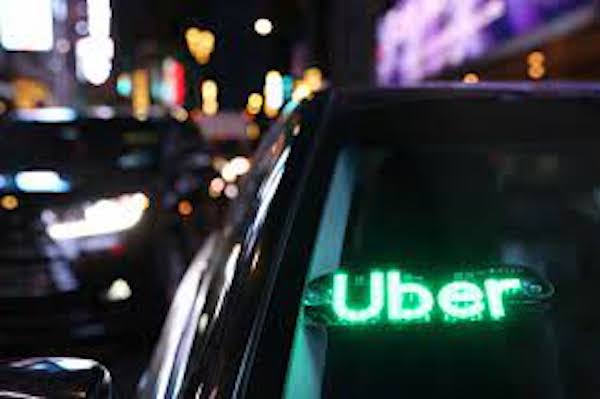Uber reported a mixed first quarter on Wednesday, with bookings up 35% from a year ago to $26.4 billion – but a net loss of $5.9 billion, due mostly to the drop in value of its stakes in Didi, Grab and Aurora.
The share price of the Asian ride-hailing companies has sunk since they were listed in the United States last year.
Didi’s share price has slumped over 60% since the crackdown imposed by regulators in China.
Shares in Grab, which is the biggest SPAC to date, have reportedly fallen 82% since their high in November, while the stock of self-driving group Aurora Innovation is also down more than 75%.
Uber said on Wednesday said it had no need to boost incentives further to lure more drivers and forecast a strong second quarter, a day after rival Lyft said it needed to spend more for labour in the coming months.
Executives said Uber drivers on the road for more than 20 hours a week were earning an average of $39 an hour in the first quarter, including tips and a fuel surcharge.
Uber reported first-quarter adjusted EBITDA – earnings before interest, taxes, depreciation and amortisation – which excludes stock-based compensation and other expenses, of $168 million. That surpassed the average analyst expectation of $132 million, according to IBES data from Refinitiv.
The company’s second-quarter guidance also topped analyst expectations.
Chief executive Dara Khosrowshahi said Uber‘s driver base was at a post-pandemic high, adding that the company expected that trend to continue without significant incentive investments.
Khosrowshahi said in December he intends to sell non-strategic stakes, including its holding in Didi, when the time is right.
Ride-Hail Revenue Up
Ride-hail revenue, which took a tumble during the pandemic, for the first time outpaced delivery revenue in a sign of travel rebound. April mobility gross bookings exceeded 2019 levels in all global markets, he said.
The return of riders did not come at the expense of Uber Eats customers, who continued ordering food deliveries from restaurants.
Hargreaves Lansdown analyst Susannah Streeter said Uber had been able to better retain and attract drivers by offering earnings opportunities in not just ride-hail, but food delivery during the pandemic.
“There has been some relief among investors that for now Uber isn’t in quite the same vulnerable position of having to offer steep incentives to lure drivers back,” Streeter said.
Uber also said it expected to generate “meaningful positive cash flows” for the full year, which would mark the first time it achieved this goal in the company’s 13-year history.
However, on a net basis, Uber‘s first-quarter loss surged to $5.9 billion from $108 million a year ago, driven by $5.6 billion in drops in the value of stakes in other poorly performing companies, primarily Didi Global in China.
Uber chief financial officer Nelson Chai said Uber had the liquidity to sit on the loss-making positions and wait for a better time to sell them.
Uber’s share price fell 11% in early US trading but recovered half of that to be 4.7% down at $28.10 at the close.
• Jim Pollard with Reuters.
ALSO on AF:
Uber CEO Intends to Sell Off Stake in Didi Global
Uber promises 100% electric vehicles by 2040
























